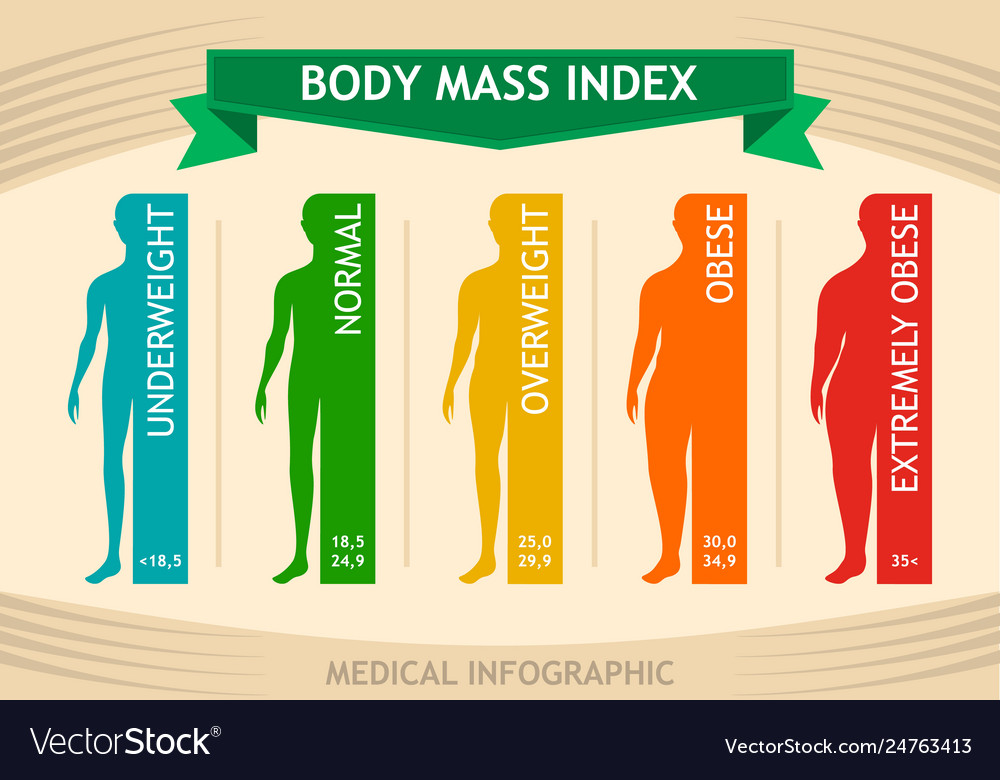The term Body Mass Index (BMI). It was first coined by the famous Belgian astronomer, mathematician, statistician, and sociologist Lambert Adolphe Jacques Quetelet in the year of 1830. Body Mass Index (BMI) occasionally known as Quetelet Index. It is a popular method used for measuring the quantifiable level of tissue mass in a person. Body Mass Index (BMI) is generally used to classify a person as underweight, normal weighted, overweight, or obese based on their level of tissue mass (fat, bone, and muscle) and height.
Therefore, BMI is calculated by the ratio of the weight of a person to their height (squared). Its unit is Kg/m2 or lbs/inc2. A chart has been provided by the World Health Organization.
(WHO) that categorizes a person based on their Body Mass Indexed score. The chart is as follows:
Category BMI Score
Underweight less than 18.5
Normal Weight 18.5 – 24.9
Overweight 25 – 29.9
Obesity (Class 1) 30 – 34.9
Obesity (Class 2) 35 – 39.9
Extreme Obesity (Class 3) 40+
The relevance of the Body Mass Index is high with respect to the everyday fast pace of life. One can simply calculate their BMI score in order to understand their issues with health. Considering how stress and overeating can be associated with Overweighing and lack of focus can be associated with a symptom of underweight. People who score less than 18.5 or higher than 25 are also more susceptible to more diseases. And thus have a less mortality rate in comparison to those who score between 18.5 to 24 on the body mass index ratio.
Although the Body Mass Index is a pretty reliable way to determine the health status of a being. It has a few limitations as well. BMI works better only for the age group of people between 18-60. As teens and older people’s scores aren’t often reliable. The other being how BMI takes the whole weight (bone density, muscle, and fat) of a person rather than focusing solely on fat. Therefore it isn’t a reliable option for professional bodybuilders and athletes. In brief, the Body Mass Index is a way to make one aware of their current health which should be the number one priority of everyone.
ALSO READ : http://thenitrrshworld.com/benefits-of-aloe-vera/
